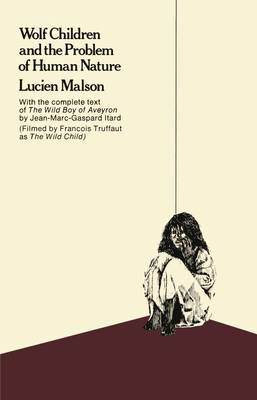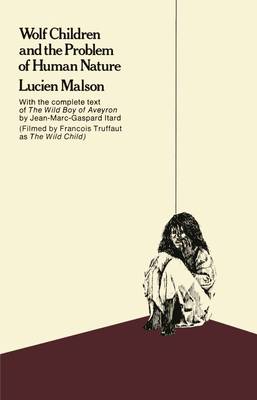
- Afhalen na 1 uur in een winkel met voorraad
- Gratis thuislevering in België vanaf € 30
- Ruim aanbod met 7 miljoen producten
- Afhalen na 1 uur in een winkel met voorraad
- Gratis thuislevering in België vanaf € 30
- Ruim aanbod met 7 miljoen producten
Zoeken
Omschrijving
"The idea that man has no nature," Malson begins, "is now beyond dispute. He has or rather is a history." In these provocative words, which form the theme of this essay, Malson carries one step further the assumption of behaviorists, structural functionalists, cultural anthropologists, and evolutionists that "human nature" is a constant. If the content of the analysis made by anthropologists is not affected by a "human nature" that lies outside of history, humanity to all effects and purposes becomes its history. So-called wolf children are children abandoned at an early age and found leading an isolated existence. They are thus natural examples of complete social deprivation and Malson explores their history in this complete study. His essay is followed by Itard's account of Victor, a wolf child found in the forests of central France at the end of the eighteenth century. Itard's two reports have become a classic of psychological and educational literature, and are presented here as the most important first-hand account of a wolf child.
Specificaties
Betrokkenen
- Auteur(s):
- Uitgeverij:
Inhoud
- Aantal bladzijden:
- 182
- Taal:
- Engels
Eigenschappen
- Productcode (EAN):
- 9780853452645
- Verschijningsdatum:
- 1/01/1972
- Uitvoering:
- Paperback
- Formaat:
- Trade paperback (VS)
- Afmetingen:
- 140 mm x 216 mm
- Gewicht:
- 235 g

Alleen bij Standaard Boekhandel
+ 40 punten op je klantenkaart van Standaard Boekhandel
Beoordelingen
We publiceren alleen reviews die voldoen aan de voorwaarden voor reviews. Bekijk onze voorwaarden voor reviews.







